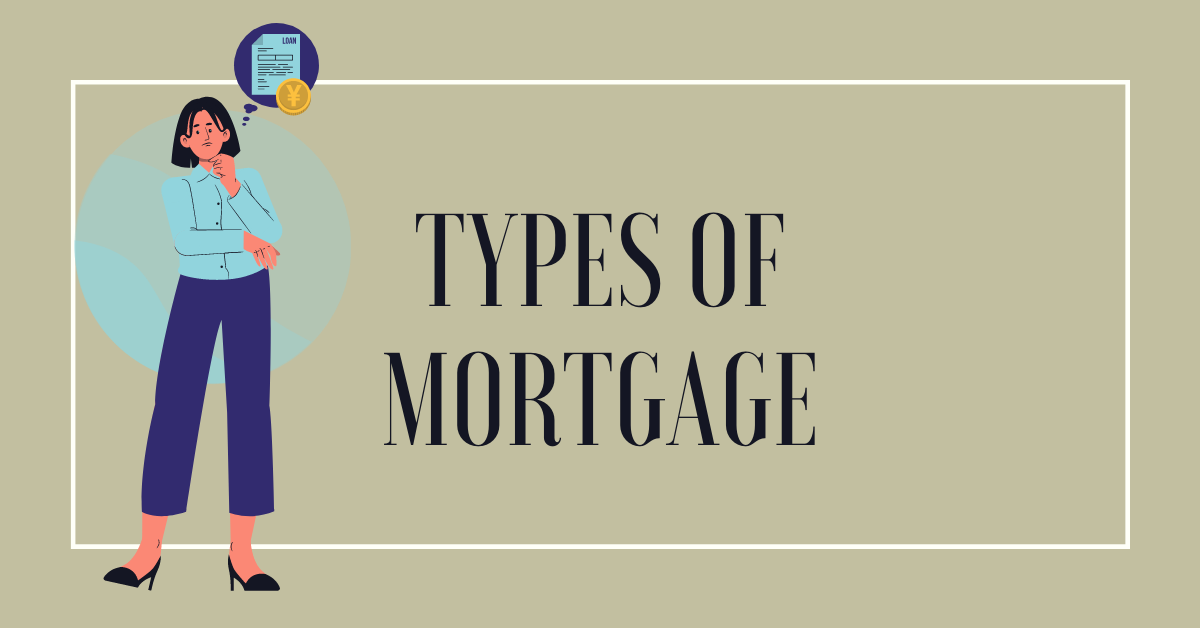Don’t Get Stuck: Understanding the Different Types of Mortgages

Navigating the world of mortgages can be daunting, but fear not! In this guide, we’ll break down the various types of mortgages, empowering you with the knowledge to make informed decisions about your financial future. From fixed-rate mortgages providing stability to adjustable-rate mortgages offering flexibility, we’ll explore the nuances of each option. So, let’s dive in and demystify the world of mortgages together!
Getting Started with Mortgages

Understanding the basics is crucial. Before delving into specific types of mortgages, let’s lay the groundwork. What exactly is a mortgage, and how does it work?
Mortgages are loans specifically designed for purchasing real estate. They typically span several years, with borrowers making monthly payments to repay the loan plus interest. Mortgages involve collateral, usually the property being purchased, which serves as security for the lender.
Fixed-Rate Mortgages: Stability Personified

When stability is key, fixed-rate mortgages shine. With this type of mortgage, the interest rate remains constant throughout the loan term, providing predictability and peace of mind to borrowers.
Fixed-rate mortgages offer protection against fluctuating interest rates, making budgeting more manageable. Whether interest rates rise or fall in the market, your mortgage payments stay the same, offering stability amidst economic uncertainty.
Adjustable-Rate Mortgages (ARMs): Embracing Flexibility

Flexibility is the name of the game with adjustable-rate mortgages (ARMs). Unlike fixed-rate mortgages, ARMs feature interest rates that can fluctuate periodically, typically adjusting annually after an initial fixed period.
While ARMs often start with lower initial interest rates, they carry the risk of rates rising in the future. However, for borrowers planning to relocate or refinance within a few years, ARMs can offer significant cost savings.
Interest-Only Mortgages: Managing Cash Flow

Interest-only mortgages allow borrowers to pay only the interest on the loan for a specified period, typically five to ten years, before transitioning to principal and interest payments. This initial period of lower payments can be advantageous for those seeking to manage cash flow effectively.
However, it’s essential to understand that once the interest-only period ends, monthly payments will increase significantly as borrowers begin repaying both the principal and interest.
Government-Backed Mortgages: Supportive Options

Government-backed mortgages, such as those insured by the Federal Housing Administration (FHA) or guaranteed by the Department of Veterans Affairs (VA), provide accessible options for certain demographics, including first-time homebuyers and veterans.
These mortgages often feature lower down payment requirements and more flexible qualification criteria, making homeownership attainable for individuals who may not qualify for conventional loans.
Jumbo Mortgages: High-Value Financing

For those seeking to purchase high-value properties, jumbo mortgages offer financing above the conforming loan limits set by government-sponsored enterprises (GSEs) like Fannie Mae and Freddie Mac.
While jumbo mortgages provide access to larger loan amounts, they typically require higher credit scores, lower debt-to-income ratios, and larger down payments compared to conventional mortgages.
Navigating the mortgage landscape can be overwhelming, but with the right knowledge, you can make informed decisions that align with your financial goals. Whether you prioritize stability, flexibility, or affordability, there’s a mortgage option tailored to your needs.
FAQs
Eligibility for a mortgage is typically determined by factors such as credit score, income, employment history, debt-to-income ratio, and the property’s appraised value.
Yes, aside from principal and interest payments, borrowers may incur additional costs such as property taxes, homeowner insurance, private mortgage insurance (PMI), and closing costs.
Yes, many mortgages allow for early repayment without penalties. However, it’s essential to review your loan agreement and consult with your lender to understand any prepayment terms or conditions.
Defaulting in mortgage payments can have serious consequences, including foreclosure, damage to credit scores, and potential loss of property. It’s crucial to communicate with your lender if you encounter financial difficulties to explore alternative solutions.
Choosing the right mortgage depends on various factors, including your financial situation, long-term goals, risk tolerance, and preferences regarding interest rate stability. Consider consulting with a mortgage advisor to assess your options.
Yes, refinancing allows borrowers to replace their current mortgage with a new loan, often to secure a lower interest rate, shorten the loan term, or tap into home equity. Refinancing can be a strategic financial move, but it’s essential to evaluate the associated costs and benefits carefully.
Conclusion
In conclusion, understanding the different types of mortgages empowers you to make informed decisions about your homeownership journey. Whether you prioritize stability, flexibility, or affordability, there’s a mortgage option suited to your unique needs and preferences. By leveraging this knowledge and exploring your options, you can navigate the mortgage landscape with confidence and embark on a path to achieving your homeownership goals.


